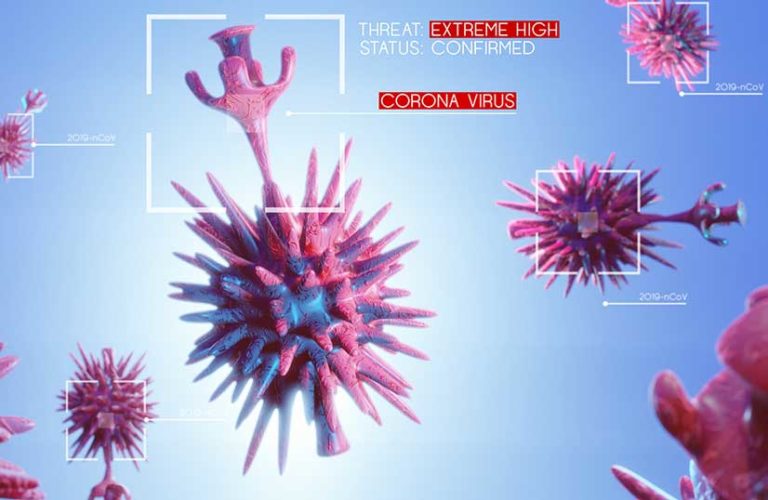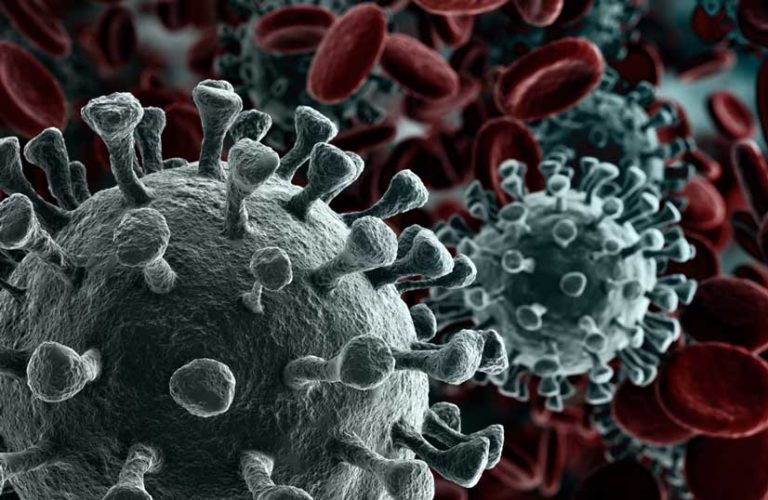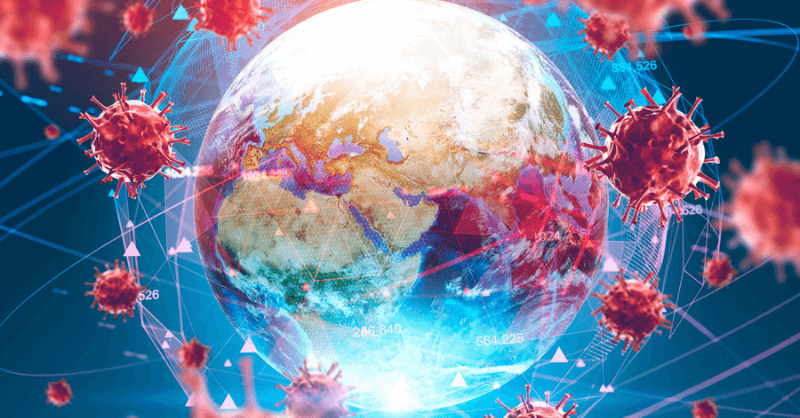2020, the beginning of a new decade, but little did we know that 2020 would start with some of the worst disasters in human history.
And among those disasters, the most concerning one by far is the outbreak of the novel coronavirus. Which has already claimed the lives of 362 people worldwide and 17,488 confirmed cases across 27 countries so far and among them 2 of those cases are in the UK.
Now it is very important to understand one thing, there is no point in panicking, and you should not believe everything you hear on the internet, especially on social media, just because the person you follow has many followers doesn’t make that person a reliable source, so always, always rely on reputable and reliable sources such as the WHO. you should be alert, not anxious.
What is coronavirus?
“Coronaviruses are a large family of viruses found in both animals and humans. Some infect people and are known to cause illness ranging from the common cold to more severe diseases such as Middle East Respiratory Syndrome (MERS) and Severe Acute Respiratory Syndrome (SARS).”

What is a Novel Coronavirus?
“A novel coronavirus (CoV) is a new strain of coronavirus that has not been previously identified in humans. The new, or “novel” coronavirus, now called 2019-nCoV, had not previously been detected before the outbreak was reported in Wuhan, China in December 2019.”
A brief history of Coronavirus
The history of the novel coronavirus is very fresh and new. Although we have known about coronaviruses since the 1960s what makes novel coronavirus so dangerous is that it affects humans.
It began on December 31 of last year when the World Health Organisation (WHO) got a report about an outbreak of pneumonia of unknown etiology in Wuhan City. When the Chinese authorities confirmed that the cause of the outbreak was a novel coronavirus it raised concerns, it raised concern because when a virus is new, we do not know how it affects people.
The new virus is a coronavirus, which is a family of viruses that include the common cold, and viruses such as SARS and MERS. This new virus was temporarily named “2019-nCoV.”
The first confirmed case of 2019-nCoV documented outside China was on January 13, 2020, public health officials in Thailand confirmed detection of a human infected with the novel coronavirus who was a traveller from Wuhan, China. On January 17, 2020 a second case was confirmed in Thailand, also in a returned traveller from Wuhan City.
On January 15, 2020 health officials in Japan confirmed 2019-nCoV infection in a returned traveller from Wuhan City.
On Jan. 30, the World Health Organization declared the coronavirus outbreak a Global Public Health Emergency.
Now everything I discuss here is information that is available right now, we might learn something new tomorrow or the day after that, as this is a new virus there are many unanswered questions and we are learning new things every day.
Now let’s discuss the most common questions regarding the novel coronavirus

What are the Symptoms?
The common symptoms are
- fever,
- cough,
- runny nose,
- sore throat,
- shortness of breath.
- Tiredness
- Pain in muscle
For some people, the symptoms can be severe and lead to pneumonia and breathing difficulties.
The virus appears to cause more severe disease in older people, people with weakened immune systems, and those with chronic diseases such as renal disease, cancer, chronic lung disease, and diabetes.
How does it spread?
It is a respiratory virus which primarily spreads through coughs and sneezes of infected persons. It could also spread through droplets of saliva or discharges from the nose of infected people.
Is there a cure?
I’m sorry to say but there is no cure available as of yet.
But the authorities are working very hard to develop a cure for the virus. And they are doing everything they can to stop the virus from spreading. China has already begun constructing hospitals for infected people.
How to Protect Yourself From Coronavirus
What can I do to prevent coronavirus?
- Clean your hands frequently with alcohol-based hand rub or soap and water
- Avoid contact with anyone who has a fever or cough
- Avoid touching your face with your hands
- Stay at home if you have fever or cough
- Thoroughly cook meat and eggs
- Cover coughs and sneezes with a tissue or your inner elbow and throw away the tissue and wash your hands
- Avoid being bitten or scratched by an animal.
- Have your pets vaccinated and take them for regular annual visits to the veterinarian.
- Talk to your veterinarian about appropriate flea and tick preventatives for your pets.
- Don’t eat, drink, or touch your eyes or mouth while you’re handling or in close contact with animals.
- Use gloves if you need to handle an animal that is or appears to be sick.
- Keep any areas where animals are kept clean and sanitary.
- Be aware of areas where animals or insects might be when you’re out in nature, especially when you participate in activities like hunting and camping.
- Don’t handle or approach any animal in the wild that appears sick. Be sure to contact animal control or the local government to have the sick animal removed.
- You can use masks for safety however, masks does not guarantee protection against coronavirus
These are simple and easy things that you can do to prevent coronavirus and decrease the chances of getting infected by the virus
Are antibiotics effective in preventing and treating novel coronavirus?
No, antibiotics work against bacteria, corona is a virus, so antibiotics are not effective against coronavirus
Is it safe to receive packages from coronavirus infected countries?
Yes, it is safe. People receiving packages are not at risk of contracting the new coronavirus. From experience with other coronaviruses, we know that these types of viruses don’t survive long on objects, such as letters or packages.
How long is the incubation period?
It could be up to 14 days
Can I catch coronavirus from my pet?
No, at present there is no evidence that companion animals or pets such as cats and dogs have been infected or have spread the novel coronavirus
Avoid travelling to China unless absolutely necessary.
You should always remain alert for the symptoms of coronavirus, if you or anyone you know are showing any symptoms of the virus then immediately seek medical help, you have to realise this, by not seeking medical help you are endangering your life along with everyone around you.
As no cure is yet available the best we can do is take precautions against the virus.
And please do not believe everything you hear or read on the internet. Rely on reputable and reliable sources only.
Panicking will not solve this issue, remain alert, not anxious.
Recent posts
- 40 Quick ways to make money online during this lockdown
- Is PAT Testing A Legal Requirement?
- How to Become a Travel Agent
- How to Become a Cabin Crew
- How to Carry out a PAT Test – A Guide to Portable Appliance Testing
- Plumbing Tools and Accessories for the Professional Plumber
- How to Become a Plumber
- 20 Essential Car Maintenance & Repair Tips in 2020
- Novel Coronavirus Epidemic: Everything You Should Know
- Learn Microsoft Excel Online and Boosts Your Career
- Essential IT Skills that will Get You Hired as an IT Professional
- The Ultimate Guide for Getting into the Car Mechanic Industry
- Event Coordinator- Prospects and Future in the Job Market
- Top Courses That can Help to Develop Lucrative Side Jobs
- Top 10 Reasons To Become A Nursery Teacher In 2020
- 20 Best Job Search Platforms in 2020
- Types of Airlines and Airline Business Models
- 15 Reasons to Move from Sage to Xero in 2020
- 20 Must-Have Excel Skills for Professionals in 2020
- How to Become More Productive at Work: Life-changing Pro Tips for 2020








 March 05, 2020
March 05, 2020






